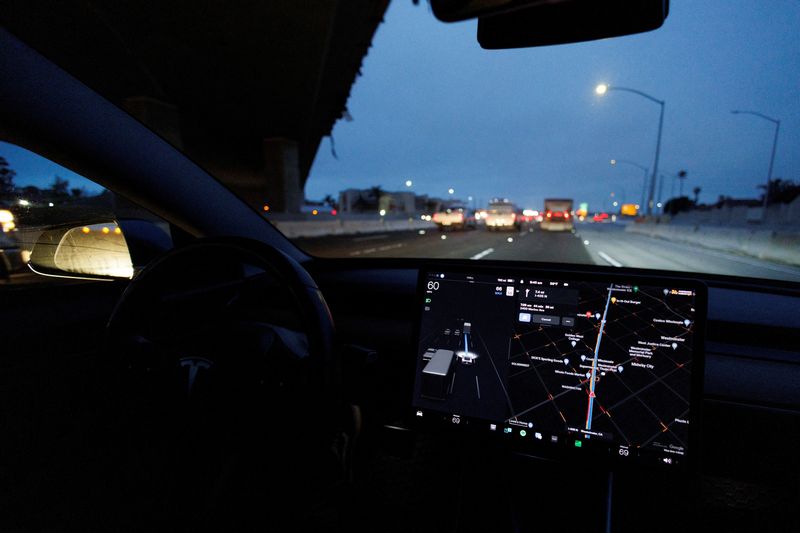US seeks answers from Tesla in Autopilot recall probe
2024.05.07 06:41

By David Shepardson
WASHINGTON (Reuters) -U.S. auto safety investigators are seeking detailed answers and documents from Tesla (NASDAQ:) in a probe into the automaker’s December recall of more than 2 million vehicles to install new Autopilot safeguards.
The National Highway Traffic Safety Administration (NHTSA) said last month it was investigating after receiving reports of 20 crashes involving vehicles that had the Autopilot software updates installed under Tesla’s recall. The agency’s letter said it had identified “several concerns” regarding the recall.
Tesla said in December its largest-ever recall covering 2.03 million U.S. vehicles – or nearly all of its vehicles on U.S. roads – was to better ensure drivers pay attention when using its advanced driver assistance system.
The NHTSA recall investigation covers models Y, X, S, 3 and Cybertruck vehicles in the U.S. equipped with Autopilot produced between the 2012 and 2024 model years.
Tesla, which did not immediately respond to a request for comment, has said repeatedly that Autopilot does not make vehicles self-driving and is intended for use with a fully attentive driver who is prepared to take over and has hands on the steering wheel.
NHTSA said it had sent Tesla an information request letter, which was made public on Tuesday, seeking details of the recall and documents by July 1.
NHTSA wants comparative data from Tesla on the performance of vehicles after receiving the recall including the number of hands on wheel warnings issued.
The agency said it had concerns after those 20 crashes as well as results from preliminary NHTSA tests of updated vehicles following Tesla’s five-part recall remedy.
One issue under investigation is Tesla’s recall allows drivers to set how they activate Autopilot by either allowing a single-pull or double-pull of the drive stalk.
NHTSA’s letter said the single-pull activation of Autopilot “is not the default setting on vehicles that received the remedy in the field” and testing “showed it was possible to make this change while driving.”
Tesla has also made additional updates to reduce crashes including high speed captive turn lane collisions that are not part of the recall.
NHTSA said it “will assess the timing and driving factors behind these updates, their impacts on subject vehicle field performance, and Tesla’s basis for not including them”.
Last month, NHTSA said it found evidence that “Tesla’s weak driver engagement system was not appropriate for Autopilot’s permissive operating capabilities” and that this results in a “critical safety gap.”
NHTSA said during its Autopilot safety probe launched in August 2021 that it had identified at least 13 Tesla crashes involving at least one death and many more involving serious injuries in which “foreseeable driver misuse of the system played an apparent role.”
NHTSA noted Tesla’s December recall “allows a driver to readily reverse” the software update.








